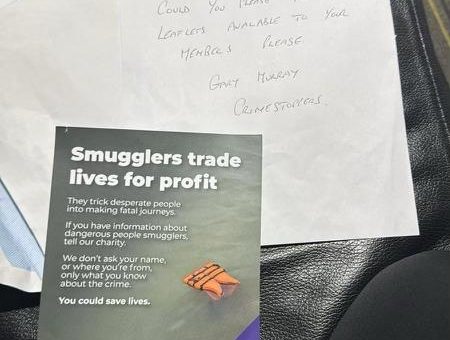The use of rap lyrics as evidence in criminal trials is tantamount to ‘discrimination’, a University of Manchester cultural historian has said.
The practice of using lyrics as evidence against the authors has garnered much negative press attention in America in recent times, but similar cases have gone relatively unnoticed in the UK.
Dr Eithne Quinn, senior lecturer in American Studies at UoM, believes that interpreting lyrics as ‘autobiographical’ is ‘ignorant’, and is worried that it will lead to miscarriages in justice.
And speaking to MM, ahead of the uni’s international workshop to challenge the practice on Friday, Dr Quinn highlighted a need to raise awareness of the issue.
“It’s to do with discrimination,” she said. “It’s to do with judgements about young black people, young poor people.
“They’re very readily seen as having bad character and a propensity towards violence.
“There are things about rap that make it susceptible to this kind of misuse.
“Rappers talk in the first person – ‘I’m bad, I’m hard, I’m going to shoot you’. Often there’s an incentive on ‘I’m from the street, I’m keeping it real’.
“There’s that level of authenticity around them music where you’re at pains to say that you are hard, you are bad, with exaggerative boasts about your street reputation.
“If you heard it on a radio you might understand it as being part of a commercial formula, and also sometimes as a kind of protest culture from people who are marginalised by society.
“When you hear those lyrics in a courtroom in the context of a murder, the prosecution can claim that they show a propensity for violence, bad character, a blueprint for murder.”
Dr Quinn’s expertise in the subject has led her to pen the book Nuthin but a G Thang: The Culture and Commerce of Gangsta Rap.
She has also been called as a defence witness in cases in which lyrics are being presented as evidence by the prosecution.
And in those cases she has seen judges take a variety of different stances to the use of lyrics
She highlighted two cases, one in which lyrics were dismissed as evidence, but another where a 17-year-old was sentenced to life in the Old Bailey, despite a lack of other corroborative evidence.
And the lecturer said that police should focus on gathering hard evidence rather than ‘dubious’ rap lyrics, whilst questioning judges making ‘prejudiced’ judgements.
“Judges don’t usually like gangster rap, they don’t usually know how to read it,” she said.
“So judges are usually coming from quite an ignorant standpoint.
“By ignorant I mean that they either just don’t know and also they may have a negative view coming into it already, a prejudicial view.
“Once it’s in the courtroom it’s usually very prejudicial, they can be quite powerful for the prosecution.
“But I would say that it can’t be justified because although it may be made with autobiographical elements, I think anyone who has any knowledge of rap music would know that it’s not autobiographical.”
In Friday’s summit, Dr Quinn will be joined at the university by an array of experts, including some battling the issue in America.
They’re aiming to explore at ‘the broader criminalising of rap’, whilst raising awareness of the issue, and trying to establish the best way to support those affected.
To find out more about the Prosecuting Rap conference, click here.
Image courtesy of Universal Pictures, via YouTube, with thanks.



